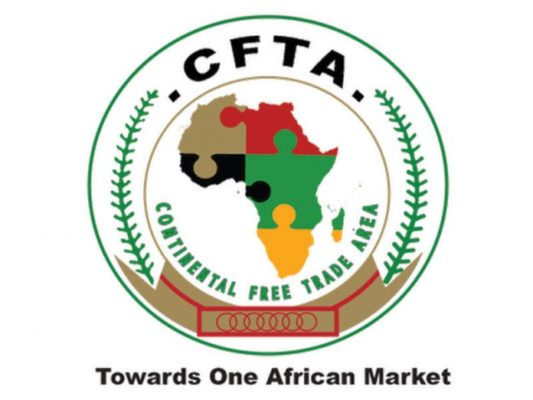Acting Chief Trade Negotiator and Director General, Nigerian Office for Trade Negotiations (NOTN), Liman Victor Liman, has disclosed consulting Nigerian Labour Congress (NLC), and other public stakeholders on the ongoing Africa Continental Free Trade Area (AfCFTA), negotiations, ahead of its implementation in July 2020.
Liman, who stated this at the consultative meeting at the weekend in Abuja, noted that the negotiation will enable stakeholders to interrogate, analyse, consider, validate and agree on the final schedule of specific commitment on trade in services that will be finally submitted to the Economic Community of West African States (ECOWAS) for harmonisation.
He added that the harmonised schedule will be transmitted to the AfCFTA Secretariat as a single ECOWAS Schedule of Specific Commitment on Trade in Services.
He said: “The engagement to interrogate the key priority Services sectors continues; and would thereafter culminate into a joint umbrella public and private consultation forum.
“Also, as part of the need for transparency and ownership of the process, private sector stakeholders must be engaged and consulted separately from the public stakeholders. Prior to this engagement earlier today, private sector stakeholders on financial services were equally engaged and consulted yesterday.
“This is not a one-off or standalone process. We shall continue to reach out, engage, and include all critical, relevant state and non-state actors in our work. This is because of my personal commitment to ensure that every negotiated position and outcome shall be driven by operators, the Nigerian population that is directly linked to every negotiated impact/outcome.”
“The main framework Agreement of the AfCFTA, embedded therein are three protocols, namely, the Protocol on Trade in Goods, Protocol on Trade in Services and the Protocol on the Rules and Procedures on the Settlement of Disputes, the last Protocol provides a foundation for settlement of disputes and anchors the AfCFTA on a solid, credible and rule-based Regional Free Trade Area.”
You cannot rule out conflicts and disputes among AfCFTA State Parties that are engaged in trade,” he said.
THISDAY

